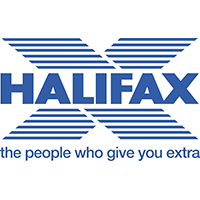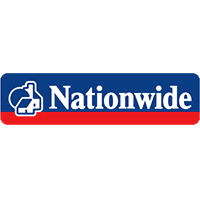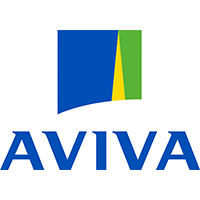Secured Loans


- Practical help on secured and Unsecured Loans
- get the right Loan
- information more

Secured Loans
How much loan should I borrow and over how long?
Secured loan or unsecured loan : Which kind of loan is best for me?
What is best for me - A personal loan or mortgage?
What should I look for when arranging a personal loan?
Am I protected under laws when I take out a personal loan?
Is it worth taking out insurance to cover my personal loan repayments?
What is credit checking and credit scoring?
How much loan should I borrow and over how long?
As a general rule of thumb, the more you borrow, the cheaper the rates of interest. So if you want say, £1,000, you could be looking at rates as high as 20 per cent - the lenders say this is because of the relatively high administration costs involved in arranging loans. Sums of this size are often better put on a low cost credit card, or run as a bank overdraft.
But for the bigger sums, many will opt for a personal loan. Borrow £25,000,
spread over say a five year period, and you could be looking at rates
of under six per cent. Many borrowers will use their loans to consolidate
other, more expensive debts such as outstanding credit card balances
and bank overdrafts - but of course millions use them for major purchases
such as motor cars.
Most people typically clear their loans on a regular monthly basis, taking
from anywhere between one and five years.
Secured loans or unsecured loans : Which kind of loan is best for me?
Secured loans are Loans secured against some kind of
surety typically the lender uses the borrowers property. This means that
the lender has the right to take ownership of the asset if you fail to
make the repayments that are due under your loan agreement.
While many of us would pull back at the prospect of putting our homes
a risk, there are advantages to taking out a secured loan.
As the lender's risk of default is reduced, this usually means a lower
interest rate and the option of a longer repayment period to reduce the
monthly payments. (term will usually range between three years and twenty
five years)
The amount of borrowing allowed differs between secured and unsecured
loans, it is usually possible to borrow far more by taking a secured
loan.
Lenders up to £100,000 - but you'll typically need to put the deeds
to your home on the table.
You may be charged a penalty if you repay your loan earlier than agreed,
and you should check each lender's individual criteria.
Refinance Mortgage
Unsecured Loans As the loan has no surety the rates of interest
charged are normally higher and the maximum loan terms are shorter than those
available for secured loans.
Although lowest APR is one factor that contributes to a low monthly payment
on a loan, you should always pay attention to the small print as any
additional costs and conditions will be found there.
Some lenders do apply an early settlement charge (also known as a redemption
penalty) if the debt is repaid in full before the agreed end date. This
can be as much as to 2 months interest. If you think you'll clear the
loan before the agreed end date then you should look for a loan
with no early settlement costs, even if the APR is slightly higher.
If your credit rating is not as good as it might be, Lenders may not offer you the lowest APR on their personal loan products. It is important to realize that the difference between one or two per cent on repayments spread over three or five years is very little.
What is best for me - A personal loan or mortgage?
While personal loans typically have rates between around 6 per cent and 18 per cent, it's possible to find a fixed rate mortgage at 5 per cent or less.
Mortgage lenders are more than ready to extend existing mortgages
or offer re mortgage schemes particularly when increases in property
prices have left many people with large amounts of equity in their home.
Link to re mortgage home page
You can arrange an extended mortgage over a period similar to a personal
loan, and the repayments, like loans, are structured to pay off the debt
at a fixed time. It is important to remember that if you do not keep
up the payments your home is at risk.
The interest rate applied is known as the Annual Percentage Rate (APR),
and is the first to look at when arranging a loan as this determines
how competitive they are.
If it's presented as a monthly rate of interest, check the annual equivalent,
which will allow you to compare it with other lenders on a like for like
basis.
When you're looking at interest rates, it's also important to consider
any other factors that might be making them cheaper. For instance, a
'secured' loan might have a lower interest rate but it will represent
a higher risk, because if you default on repayments your home could be
at risk.
It is not unusual for lenders to offer different APR's depending on the method of application e.g. applications online may offer lower APR's than by phone.
If the new loan is truly flexible then you may also be able to withdraw funds from the account on a rolling basis, providing you stay within your credit limit.
Lenders may also offer repayment holidays or payment breaks, allowing you to take a break from your monthly repayments either at the start of the loan or at an agreed point during the term. It is worth noting that interest will continue to be charged on the outstanding balance and this may result in increased monthly payments so your debt is still repaid over the term agreed at the outset.
Am I protected under laws when I take out a personal loan?
Personal loans - both secured and unsecured - are governed by the Consumer
Credit Act 1974.
The Act contains strict regulations about how money is lent and covers
unsecured loans up to £25,000 (these are known as 'regulated loans').
When taking out a personal loan you will be asked to sign a credit agreement,
and you'll be bound by its terms.
If you get into difficulties when repaying your loan, be sure to tell
the lender promptly. It will usually be possible to arrange a different
loan repayment schedule, although there may be additional penalties for
this facility.
PERSONAL AND UNSECURED LOANS ARE NOT REGULATED BY THE Financial Conduct Authority
Is it worth taking out insurance to cover my personal loan repayments?
Make sure that the insurance being offered is right for your particular needs. Most policies will have regulations stating that you can't claim for up to 60 days after losing your job or getting sick. There can also be clauses stating that you lose any benefits if you work for even a single day.
Reading the small print on a loan contract is particularly important if you're self-employed or on a fixed-term contract, you might find that you're not covered if your self-employed and work dries up or your employment contract isn't renewed.
You might even find that you're not covered if you fall ill and are unable to work so it is very important to read the small print for these kind of policies as the can be very expensive.
Credit checking and scoring - What does it mean for me?
Credit reference agencies such as Experian and Equifax hold factual information about us all and this allows a lender to check your name & address and your past credit history, including any County Court Judgments or defaults recorded against you. A poor credit record does not prevent you from getting a loan, but you will probably not get the lowest interest rate. The self employed, or those on short-term contracts may not be such an attractive risk to lenders. A common reason for being turned down for credit may be because information held about you by a credit reference agency, or information provided in your application form, suggests that you will have problems repaying.
What is credit checking and credit scoring?
Most lenders go through two main credit reference agencies for information on your financial history -), Experian (www.experian.co.uk) and Equifax (www.equifax.co.uk)
Each compiles credit histories from a number of different sources, including the electoral roll, county court judgments and how effectively past debts have been paid. each time you open or apply for a new form of credit it will leave an electronic foot print on your record, which the agencies use to compile a credit 'scoring' system. When you apply for a personal loan, the lender will run a credit check on you to see what 'score' you have.
More detailsSecured Loans
Secured Loans can be complicated, we hope that you find the information on secured & unsecured loans on this site useful. If you feel that there areas of the personal finance market not covered in this site that you would like to see please let us know your thoughts contact us.
Thank you for visiting Go Direct Secure Loans, Personal Finance made simple.
Go Direct.co.uk is a trading style for website purposes of Go Direct UK Ltd.
Go Financial Services is a trading style of Go Direct UK Ltd which is an appointed representative of Personal Touch Financial Services Ltd which is authorised and regulated by the Financial Conduct Authority. Registered in England & Wales Company 5703224. FCA Number 456600







